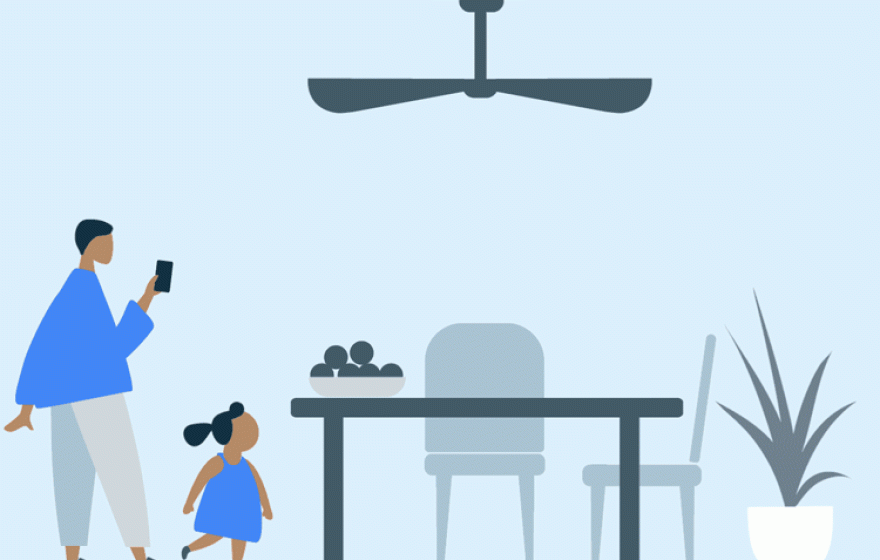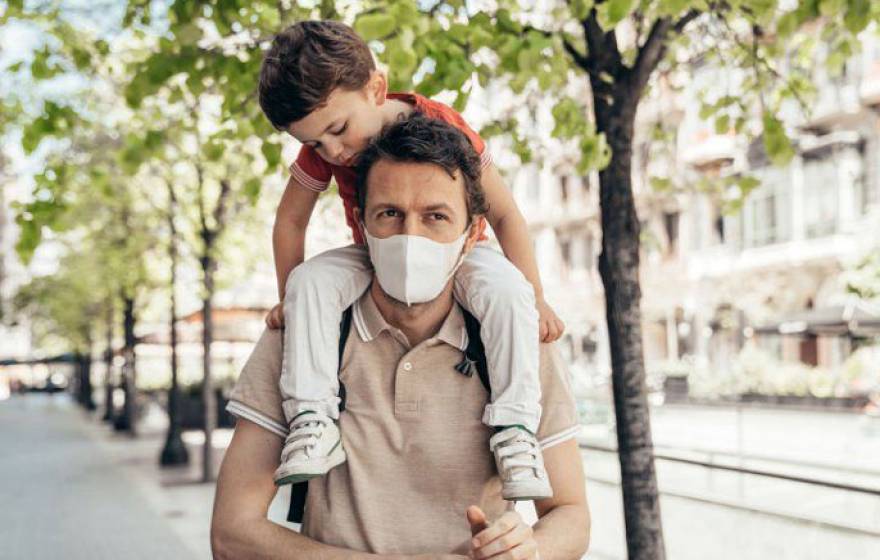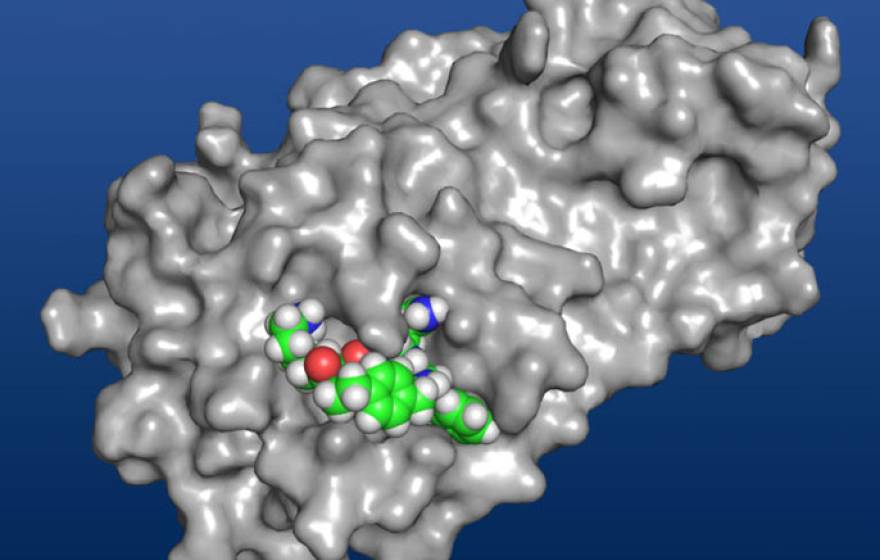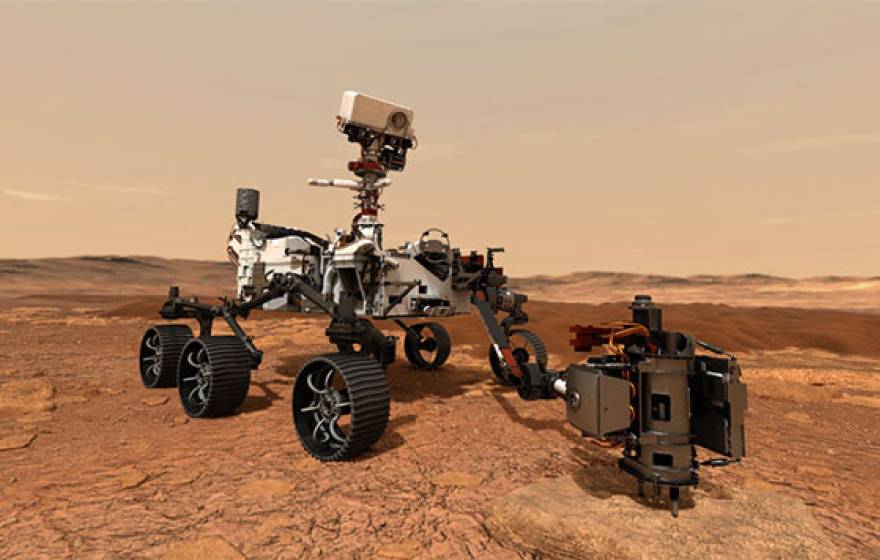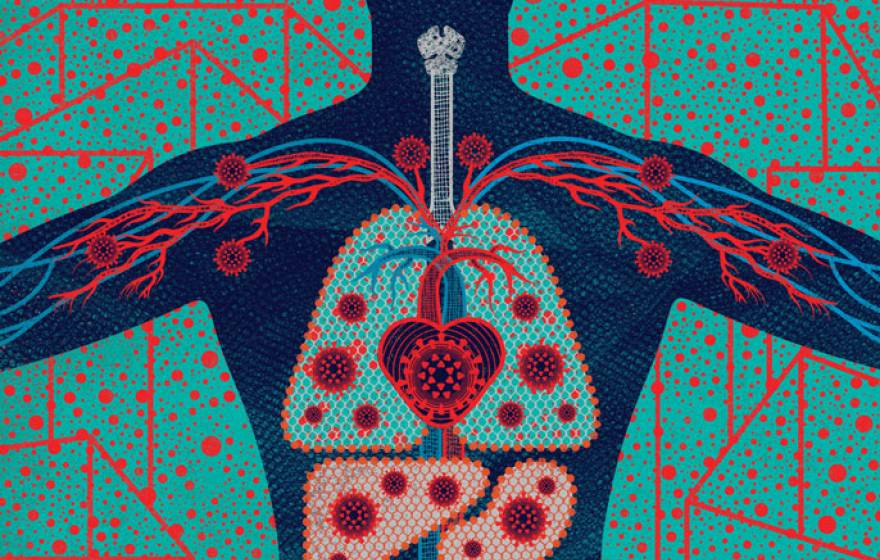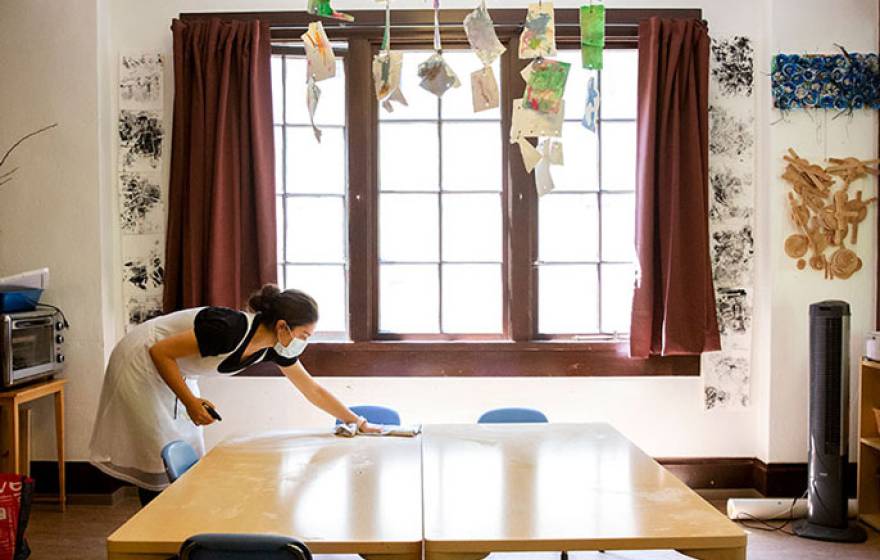Researchers have succeeded in making commercial-quality biodegradable flip-flops.
The new science behind algae-based flip-flops
With a nod to UC Berkeley, Google crowdsources earthquake data
Billions of cell phones will supply real-time earthquake data around the globe.
One more reason to wear a mask: You’ll get less sick from COVID-19
Masks, by blocking even some of the coronavirus-carrying droplets you inhale, could reduce your risk of falling seriously ill from COVID-19.
UC Irvine scientists get ‘initial hit’ in developing drug to treat COVID-19
In an important first step, a new molecule, UCI-1, is shown to bind to the coronavirus enzyme, blocking a key function.
UC Merced grad student, alumnus play significant role in Mars 2020 mission
As the rover soars toward Mars, a UC Merced lab will be partially responsible for its success.
Do fidget spinners really work?
The study will assess whether a high-tech fidget device increases focus and relieves anxiety in adults with ADHD.
We thought it was just a respiratory virus. We were wrong.
COVID-19’s effects on the body are much more complex (and potentially destructive) than that, UCSF doctors say.
New UC-led institute awarded $25M to explore potential of quantum computing and train a future workforce
The development of the quantum computer will be a real scientific revolution, says Dan Stamper-Kurn, UC Berkeley professor of physics and director of the institute.
The science is in: Masks save lives and can help us safely reopen our communities
Why you — and just as importantly, your friends — should wear masks.
Chinese fishing boats took half a billion dollars of illegal squid from North Korea. Scientists used satellites to catch them out
Satellite technology and machine learning are helping track down illegal and environmentally damaging ‘dark fleets’ of fishing boats.
When you should neuter your puppy, according to science
A 10-year study examined the risks of early neutering across 35 breeds and found surprising variation.
California child care system collapsing under COVID-19, Berkeley report says
The decline of child care creates risks to the state economy that require government intervention.
